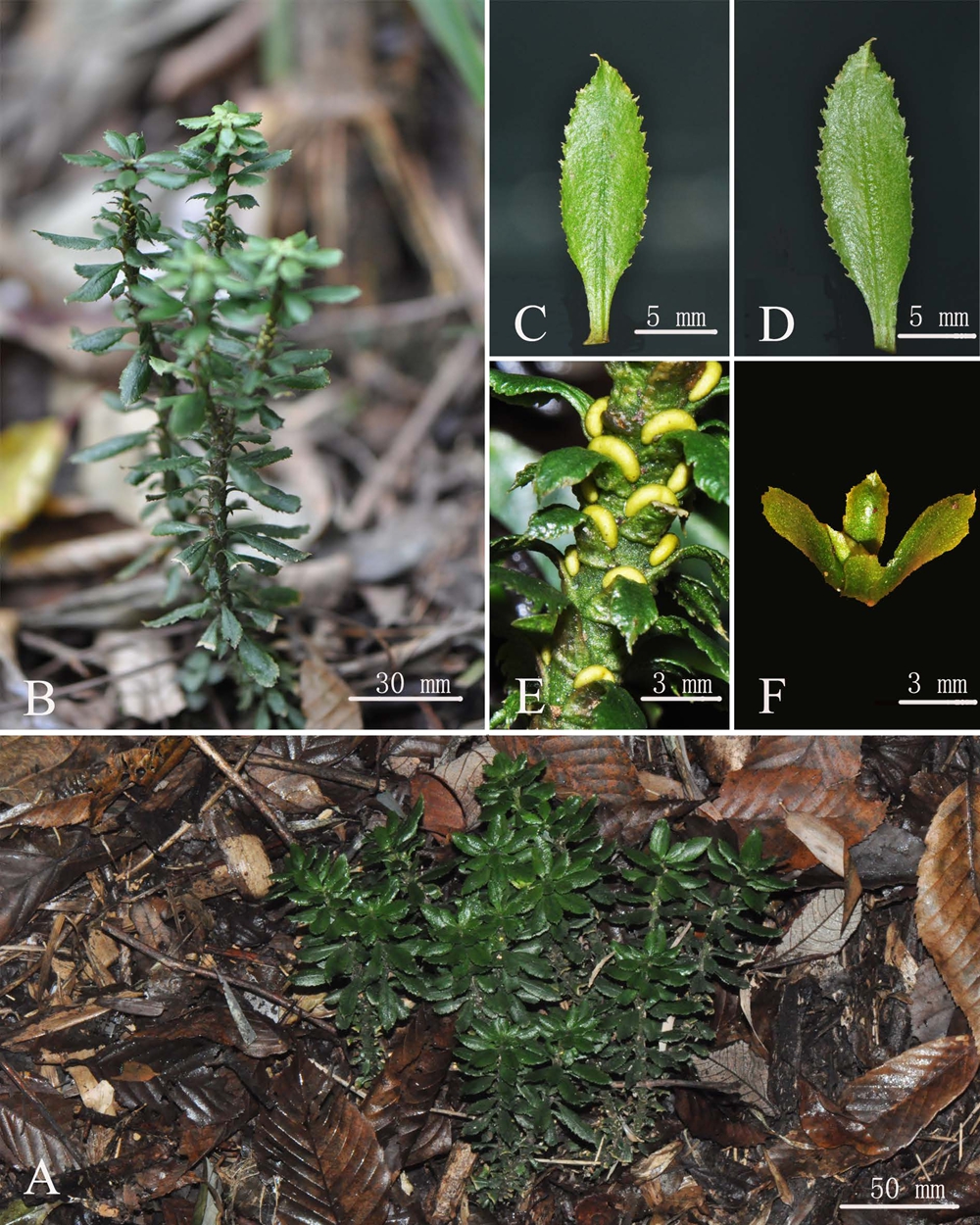Huperzia is a genus of lycophyte plants, sometimes known as the firmosses or fir clubmosses. It contains about 25 species that mainly occurs in temperate and boreal climatic zones of the world.
During medicinal plant inventories in Guizhou, researchers from Xishuangbanna Tropical Botanical Garden (XTBG) and their collaborators discovered unknown plant materials morphologically similar to Huperzia javanica. After consulting Huperzia checklists of China, local floras, and careful comparison of morphological characters with previously described species by checking specimens and species protologue for all the known species of Huperzia, the researchers considered that the plant material represented a new species.
To further confirm the new species, the researchers employed genome size measurement and phylogenetic reconstruction. Molecular evidence provided support for the confirmation.
The new species was named as Huperzia crassifolia to refer to its thick and coriaceous texture of the pinnae. It was published in PhytoKeys.
Huperzia crassifolia is a terrestrial firmoss. It resembles species H. javanica in its gross morphology, but can be easily distinguished by the thicker texture and round-lanceolate pinnae. It is morphologically distinct by its thick coriaceous texture and elliptic to slightly oblanceolate pinnae as well as the well-differentiated seasonal constriction zones. Its stem is erect or ascending. Its spores are tetrahedral, with trilete aperture and foveolate ornamentation on distal pole.
The new species is currently only known from Guizhou, Hubei, Hunan, and Chongqing, growing on humus rich soils in shady conditions formed in the undergrowth of broad leaf forests at elevations from 1100 to 1900 m above the sea level. However, the population size of each locality is very small.
“If people know its medicinal value, Huperzia crassifolia may be in danger of being over collected. We tentatively propose its conservation status as Endangered (EN) according to the IUCN categories and criteria,” said LIU Hongmei of XTBG.
Contact
LIU Hongmei Ph.D
Center for Integrative Conservation, Xishuangbanna Tropical Botanical Garden, Chinese Academy of Sciences, Menglun, Mengla, Yunnan 666303, China
E-mail: liuhongmei@xtbg.ac.cn
First published: 28 August 2024

Huperzia crassifolia (Image by GUO Zhiyou)

